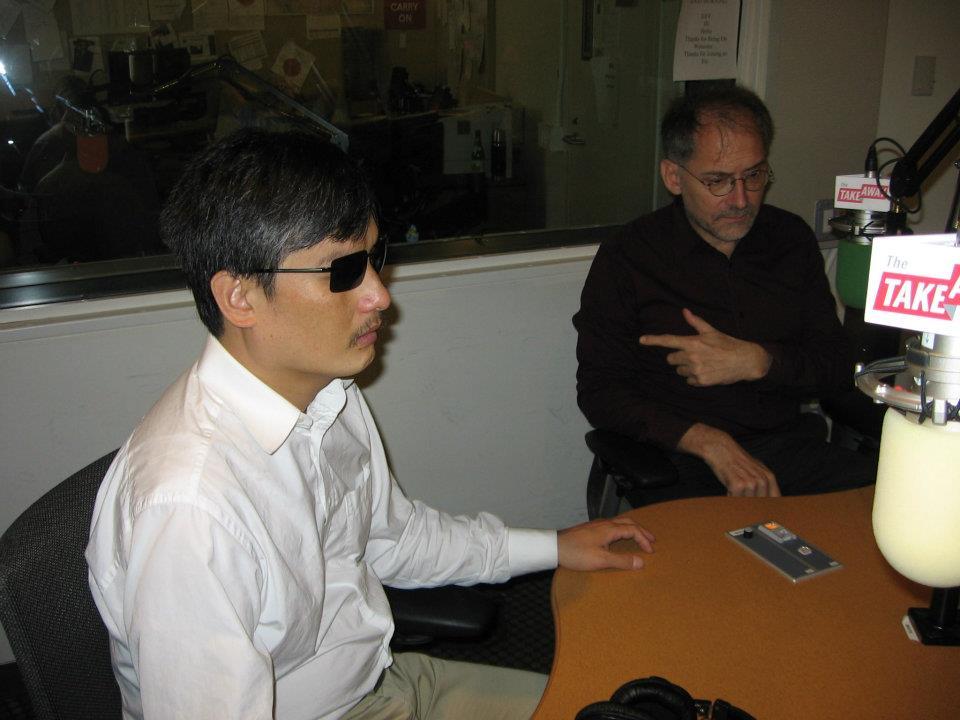Blind Chinese activist Chen Guangcheng says return to China is ‘inevitable’
Chinese blind activist Chen Guangcheng discusses disability rights in China on The Takeaway. (Photo by The Takeaway via Facebook.)
Chen Guangcheng, a blind Chinese activist who spent much of his career advocating for disability rights in his home country, told The Takeaway that his return to China was “inevitable.”
In his first national broadcast interview since arriving in the United States in May, Chen described the intersection between human rights and disability rights in the U.S. and in China. He said disabled people could hold up “a mirror to society.”
“If we hold up that mirror of disability to society, we can see whether the society itself is disabled or not,” he said in the exclusive interview.
Earlier this year, Chen gained international attention after escaping house arrest and taking refuge at the American Embassy in Beijing. He arrived in New York City with his family and began studying law at New York University after weeks of diplomatic wrangling.
The university’s U.S.-Asia Law Institute granted Chen visiting scholar status for an indefinite period.
Now that Chen has started his new life in the United States, he remains determined to change the Chinese government’s approach to disability rights. But he realizes that to truly make a difference, he must eventually return to his native China.
“I think going back to China is inevitable,” he said. “It’s just a question of when, and I can’t say exactly what time it will be.”
In the interview, Chen stressed the importance of how a society treats its disabled members, and what can be learned from taking a look at the freedoms and limitations of vulnerable citizens.
His views were echoed by Susan Dooha, executive director of the Center For Independence of the Disabled, New York. She said people with disabilities often served as the “canary in the coal mine” for different societies.
“When a system isn’t working in a way that recognizes the diversity of the community, it isn’t working for people with disabilities,” Dooha said. “As we look at the outcomes we’re able to achieve as people with disabilities, we’re able to recognize where the systems can be improved.”
Chen said one of the keys to protecting the rights of disabled people — and to bringing about genuine reform in China — was to encourage them to get involved in the fight.
“It’s not so much a matter of actually convincing people through talking to them,” he said. “It’s a matter of acting and being an example to other people, so through our own action we can show that we can bring about change.”
